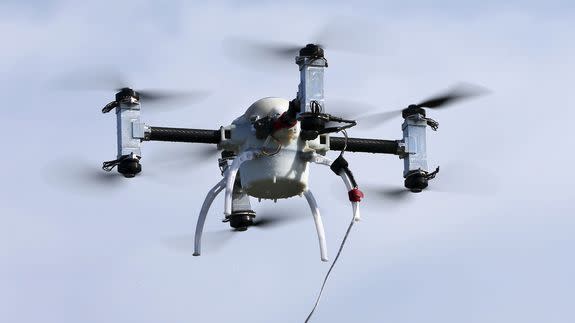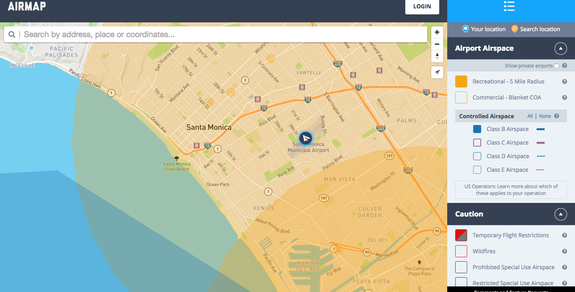New startup Flock seeks to make drone flights safer

As countries and companies plan for a future filled with drones, safety and efficiency have become top concerns. A London-based startup hopes to make the skies safer and clearer for everyone.
It's called Flock, and it uses AI to analyze data, sourced from urban environments, that allows it to assess risk for drone flights.
SEE ALSO: One small update for drones, one giant leap for safer skies
Flock works by licensing data about the position of buildings, people and cars in cities, in addition to weather conditions. Then it enters that into its risk assessment platform, which can calculate whether it's safe or not to fly.
Its target market right now is mostly limited to insurance companies, whom Flock wants to help set premiums. The company is also marketing itself to drone operators.
In the future, Flock is hoping to use its AI algorithms to predict which routes and times would have the least risk, allowing prescheduled flights and schedules. Even better, the more the AI gets a feel for patterns in the urban data, the more likely Flock will be able to offer real-time risk analysis.
“The idea is to have a robust trend analysis built in to the system so we can analyze historic data on all the data sources that we collect over a given period of time, and then build up a really good understanding of how cities move generally, how cities breathe, and how populations and traffic conditions change over time,” Ed Leon Klinger, CEO and co-founder of Flock, told TechCrunch.
From there, it can partner with insurers and drone companies to test its platform. Flock is hoping to have a minimum viable product developed within six months. The company has been funded so far with some grants from Innovate UK in addition to bootstrapping.
At this time, Flock's major competitor is AirMap, based in Santa Monica, California, which also offers airspace data for drones, and already has an iOS and Web app. It has $15 million in backing from venture capitalists. Klinger, however, said that the company is different in that it's not focusing on the development of its real-time data, but is rather focusing on "static regulation."

Image: airmap
SEE ALSO: Possibly fearing UK competition, White House pushes new drone initiatives
The success of Flock, being based in the UK, where Amazon recently announced it would test its drone delivery program, could be considered an indicator of the drone market's future. The U.S., for example, is notorious for regulations that make it harder to test drones. Then again, some analysts believe that starting in the UK is just a way to test on a small scale for better footing in larger markets.
